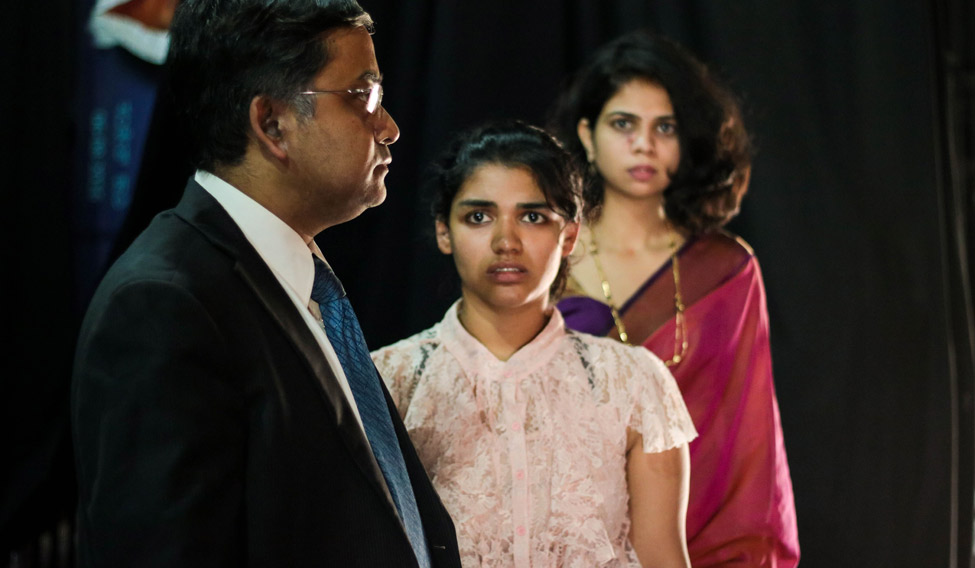In honour of the 156th birth anniversary of scholar-engineer, Sir M. Visvesvaraya, after whom Engineer's Day was instituted, popular Bengaluru theatre hub, Ranga Shankara, saw the debut of a science play called The Square Root of a Sonnet (The Strange History of Black Holes).
The play, written by Nilanjan P. Choudhury, is based on the life of Subrahmanyan Chandrasekhar, the Indian-American astrophysicist who won the Nobel Prize in 1983 for his research on black holes and vanishing stars. His work opened the gateway for the likes of Stephen Hawking and Roger Penrose in the 1960s and 1970s, but unlike his successors, Chandra, as he came to be known, had to wait for nearly four decades for the recognition due to him.
The play uses the narrative device of Chandra (Choudhury) and his wife, Lalitha (Spoorthi Gumaste) conversing in an after-life realm, looking back on their life together. They travel back in time to his initial days of struggle, boarding the steamship from Bombay to Cambridge in 1930. Somewhat reminiscent of mathematician Srinivasa Ramanujan's journey from Madras to give bigger wings to his findings.
At Cambridge, Chandra meets his idol, Sir Arthur Stanley Eddington, who seems to mentor him but strangely ends up trying to suppress his work. Why did he do that? How did their strange equation play out? The play tries to delve into the mysteries of the minds of these giants of modern astrophysics in the context of the universe they were trying to uncover.
Choudhury, who enacts Chandrasekhar, started haltingly at first, but warmed up to the role. Prakash Belawadi as Eddington, flowers into his part as the man who tried to destroy a young Chandrasekhar despite his staunch, dispassionate commitment to the cause of science. The story also brings into light the possible role that the women in their lives—Chandra's wife and Eddington's sister (Teju Belawadi as Winifred Eddington)—played in their work and relationship.
The two hour long play, almost the length of a feature film, has been directed and designed by Prakash Belawadi and despite some snags in the production and acting, the story of Chandrasekhar emerges as the hero. It would not be easy to portray such nuanced characters on stage along with distilling their complex scientific work in a way that is both engaging and discernible to laypersons. Top marks to the team for that, and hope it encourages more science dramas on the Indian theatre scene in times to come.







